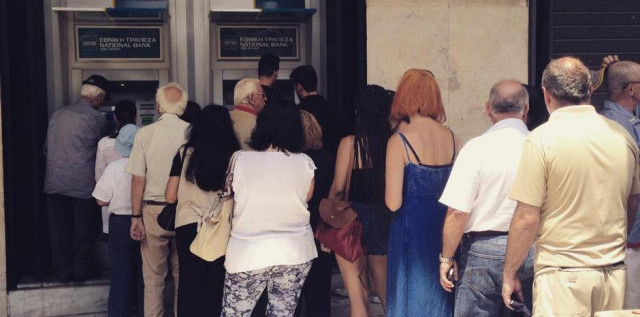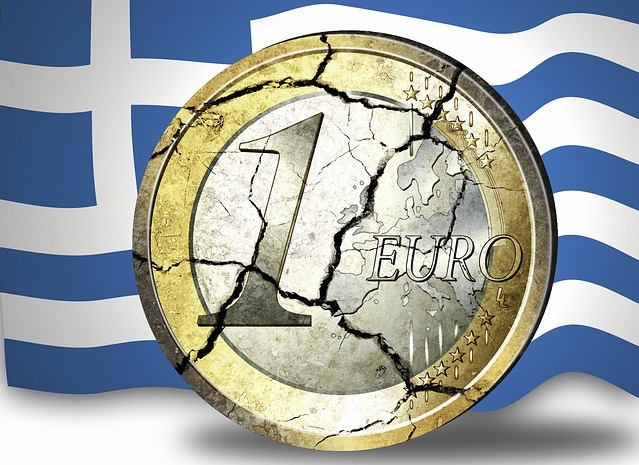The Greek “OXI” (NO) vote is all over the news. But, what’s next? by LaRouchePAC
Revive the Glass-Steagall Act — It’s time for our own United States to take the next historic steps to free the world of austerity.
If you don’t know what the Glass-Steagall act is, please take a moment and review the background of the law, and what it did.
Lyndon LaRouche’s call to action, below, is our historic responsibility not only to other nations of the world, but to ourselves, so that we might give a future to the next generations.
LaRouche: To Save the Trans-Atlantic Region, Implement FDR’s Glass Steagall Act Now
July 6, (EIRNS) — Lyndon LaRouche today responded to Sunday’s landslide rejection by Greek voters of the Troika’s genocidal austerity program, by clearly spelling out how the United States can play a decisive role in solving the otherwise irreversible collapse of the entire British-run trans-Atlantic financial system. LaRouche called for the United States to immediately adopt a return to President Franklin Delano Roosevelt’s original Glass Steagall policy.
The United States, LaRouche declared, should set the example for Europe, by immediately reinstating FDR’s Glass Steagall.
“The U.S. should solve the problem of the European mess, starting with the mess in Britain, by a Glass Steagall reorganization, clearing out the oversized and useless debt. Cancel all the debt with no intrinsic value, by going back to President Franklin Roosevelt’s successful model. Only by such a debt cancellation can there be any prospect of a longterm recovery, in real physical economic terms.”
“What has happened, as a result of the Greek operations during yesterday and today, has created a situation in which… Europe, most nations in Europe, and also the United States, are implicitly bankrupt. This is number one.
“Now what I mean on number one, on the bankruptcy, is that Wall Street in particular, and everything that coordinates with Wall Street, is now actually worthless. That will be shown in due course, that we hope we can get this thing under control. What this means, we have to go to a Glass-Steagall action. The only way we can do this, is a Glass-Steagall action. That means, in the trans-Atlantic region, I’m talking about right now the trans-Atlantic region: The situation is that the United States in particular is in a collapse. That is, Wall Street and the things which are associated with Wall Street, are now actually worthless, which means a great amount of what is called money, among the business community, especially the financial business community, is worthless, and it is going to be very difficult for Wall Street and President Obama, both, to try to cover things over in this matter.
“Now the other side of this situation is, that it is perfectly possible for us in the United States itself, and with cooperation with certain circles in Europe and elsewhere, we’re quite capable of solving the problem. And the solution is obviously, Glass-Steagall, Franklin Roosevelt’s own Glass-Steagall. That is essentially the key thing.
“And the only way that the United States and the people of the United States could possibly escape from a general breakdown of the financial system of the United States, is to go back to Glass-Steagall. That would mean we would simply cancel most of everything that’s called Wall Street, or anything like it; just cancel it. It’s rubbish. It has no intrinsic value.
“And therefore we have to go back to Franklin Roosevelt’s policies in order to save the United States economy. Now, it’s going to be a tough row to hoe, because we have very poor skills available in the U.S. population. The productive power of labor, in the United States’ population, has collapsed to a great degree…
“We see that, when people say, ‘well, some people are poor, they’re not worth keeping.’ Well, that’s not the problem, that’s not the truth of the matter. What they’re trying to do is kill off people, as in the case of California. What’s happening in California, is actually an intentional determination, to kill off as many people in California and adjoining areas as possible. That’s what the policy is; that’s plain talk, no beating around the Bush. And the Governor of California is one of the leaders, who is leading toward a campaign for mass-slaughter of people in California and adjoining areas. That’s the reality!
“However, if we go to Glass-Steagall, Franklin Roosevelt’s Glass-Steagall, with means which I’m fully aware of as feasible, we can prevent that. But the key thing now that’s driving it, is the fact that the European economy is going into a spin, downward, and this includes the British system itself, and it means other areas.”
RELATED ARTICLES:
What’s Wrong With the Latest Greek Bailout Deal
3 Tough Questions the Eurozone Will Face Over Greek Financial Crisis
Majority of Greek Voters Rejected Reasonable Offer to Let Them Stay in Eurozone. What’s Next.
Good Luck Finding a Place to Hide as Global Markets Crumble
Greece: How Did It Get Into This Mess?
RELATED VIDEO: Farage: Isn’t the EU quite as bad as the USSR, Mr Tusk?



 As a result, Athens has really and truly run out of money, and they will default on their debts starting tomorrow — and the European Central Bank has said
As a result, Athens has really and truly run out of money, and they will default on their debts starting tomorrow — and the European Central Bank has said 

